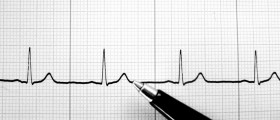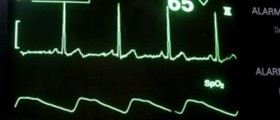
What is a heart rate?
Heart rate is referred to as a number of times a heart contracts per minute. Heart contractions serve to propel blood through the circulatory system and bring oxygen and nutrients to all cells in the body. How good your body functions is closely related to your heart rate.
Whatdetermines the heart rate?
The heart rate will depend on a number of factors, such as age, gender, activity level, general health and others. Obviously, the average heart rate (or ideal heart rate) is not the same for men, women, children, and infants.
Why is heart rate important?
Itdetermines two things. Firstly, in what shape your heart is, and secondly, in what shape are you. Heart rate is a good indicator of heart and circulatory system efficacy.
How can I measure my heart rate?
You can improvise or use some kind of equipment. It suffices to feel for your pulse on your wrist or your neck. You can listen to your heart beats directly over a stethoscope, or you can use a heart rate monitor. A heart rate monitor will give you a direct reading of your heart rate, while manual methods will require you to count how many beats there were in 15 seconds and then multiply that number by four.
So what about heart rate?
Importantheart rates that tell you how well you are are the maximal heart rate, the resting heart rate and the ideal working heart rate.
Maximal heart rate can be calculated by subtracting your age from 220 if you are a male. In example, if you are 20, your maximal heart rate is 200 beats per minute, if you are 40, your maximal heart rate is 190 beats per minute, and so on. If you are a female, just add 6 to thatnumber.
Restingheart rate is just about how slow your heart can beat, typically, when you are neither excited nor engaged in any kind of physical activity or effort. It is ideally measured immediately after you wake. The lower, the better. 60 or 70 is good, anything below 60 is great. Sportsmen and other fit people can go below 60. Pro cyclists can half that number. Lower resting heart rate indicates that heart endures less effort to maintain a certain level of activity. It is easier to do things, and obviously, you do more at the same heart rate than somebody whose resting heart rate is higher.
Workingheart rate is rate at which your heart beats during a specificactivity.
Normalheart rate
Forchildren, a normal heart rate is in th range between 70-120 BPM. It is slightly higher in children under 5.
For men, a normal heart rate is some 70 BPM, but anything between 60 and 100 BPM is fine.
For women, a normal heart rate is 70 to 80 BPM and 85-90 BPM during pregnancy.





_f_280x120.jpg)











Your thoughts on this
Loading...